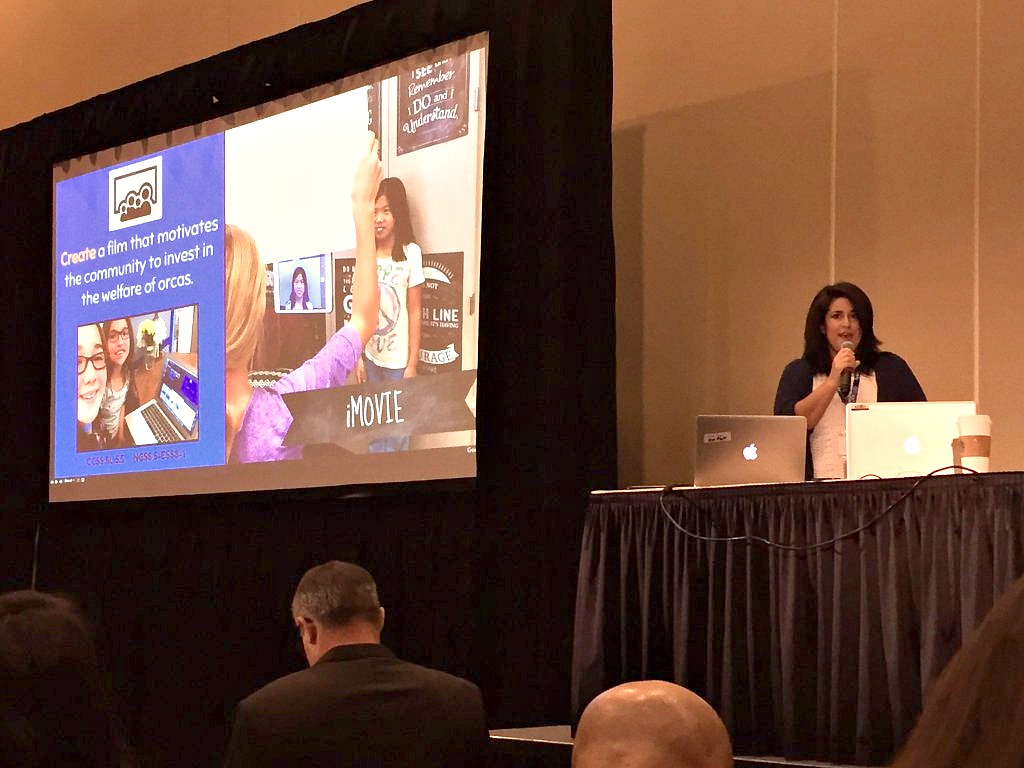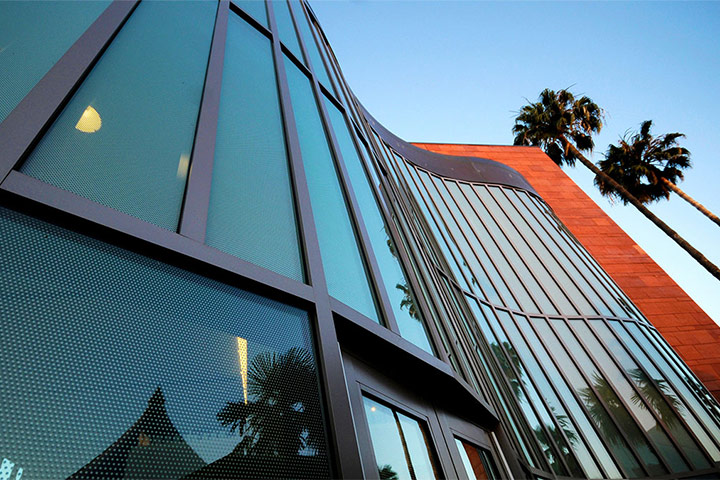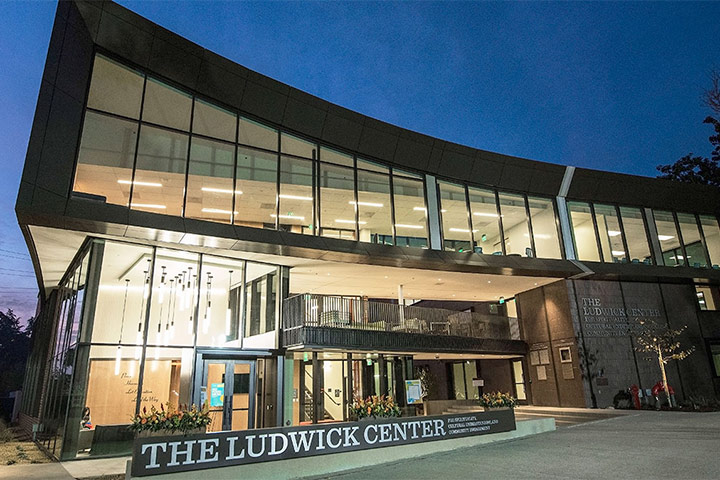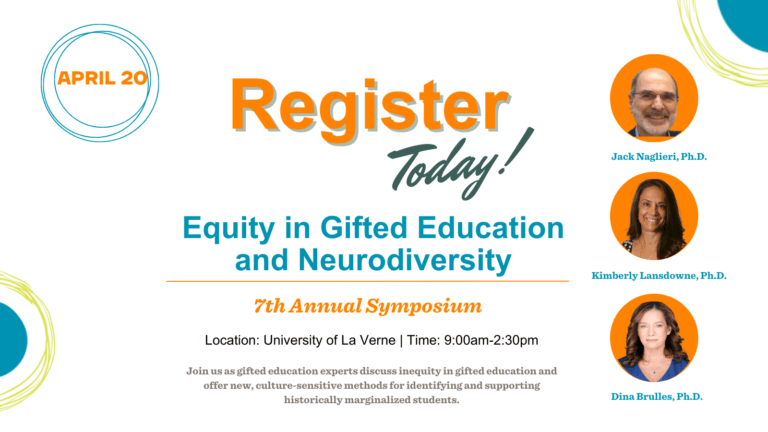Alumna Using Technology to Teach Activism, Community Engagement

Crystal Rivas’ presentation to Apple and Google-certified teachers in Palm Springs in March came with big stakes. She stood before 300 people, including a panel of judges and administrators from her school district. On the line was a $2,500 prize.
As one of six finalists, Rivas presented a new curriculum program that teaches students ways to use technology. She did not win – at least, not at the conference.
Instead, the Oak Mesa Elementary School fifth-grade teacher sold her administrators on the idea and they awarded her the funds to continue pursuing her program.
“In Bonita Unified (School District), Mrs. Rivas has been on the cutting edge of finding ways to integrate technology into her classroom instruction,” said Oak Mesa Principal Jason Coss. “Our Director of Educational Technology made a presentation at the cabinet level to seek funding for Mrs. Rivas’ project. The BUSD cabinet quickly agreed and funded Mrs. Rivas.”
Rivas entered her “Technology Driven Thematic Unit” for consideration of the LeRoy Finkel Fellowship Awards Program, otherwise known as “LeRoy’s Big Idea – Lesson Design Master Class.”
The focus of Rivas’ “big idea” was orcas – an idea inspired by her students’ interest in ocean life and her own research on the whales. She demonstrated how students can use technology in creative ways to research, debate and document the welfare of orcas,
“I knew the engagement would be assured with orcas because of the current environmental and social issues surrounding them,” Rivas said.
She developed five components for the program. Students will be tasked with designing a device to protect orcas and their habitat, and produce it with a 3D printer. She intends to have students participate in a question-and-answer session with scientists in the online video chat program Google Hangout. Through writing and analysis, students will debate issues relating to orcas, create a Public Service Announcement to draw public support, and use green screen technology to film themselves speaking about the animals.
She submitted a 60-second video summarizing her idea.
That entry earned her an invitation to the Computer Using Educators national conference, where she became one of six LeRoy Finkel award finalists allowed to give a five-minute presentation.
With the district supporting her idea, Rivas is now waiting to receive electronics such as 3D printers, iPads and more, to implement it. She hopes to fully launch the program during the next academic year.
Rivas said program components – from debating to designing a PSA – apply to the real world, preparing students to situations they will encounter in life.
“It is vital that we provide our students with a safe place to respectfully acknowledge diverse viewpoints and support their own with research and composure,” she said. “Students will need to be able to articulate and calmly debate whether they are in a coffee shop or at a board meeting at work.”
Rivas, who graduated from the University of La Verne with a Master of Education degree in 2015 and a bachelor’s degree in 2010, said she has brought to her own classroom her professors’ emphasis on a teacher’s relationship with children.
“Worksheets, curriculum, and pedagogies may change, but the human aspect never will. Through my education at the University of La Verne, I learned to view every child, not as a number or statistic, but someone who can change our world.”


